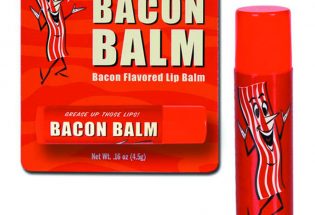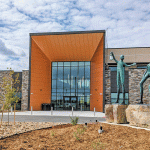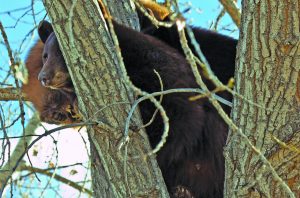Bear activity increases in preparation for winter
Black bears in Colorado are entering a phase called hyperphagia and will spend up to 20 hours a day trying to gobble down more than 20,000 calories to fatten up for winter. As bears start to prepare for hibernation and hunt for food, Berthoud residents may see more bear activity in populated areas.
According to Colorado Parks and Wildlife, most conflicts between people and bears can be traced to easily accessible human food, trash, fruit trees, shrubs or other attractants with strong odors as a bear’s natural drive to eat can overcome its fear of humans. When bears become too comfortable around humans, they can destroy property or even become a threat to human safety. This isn’t good for people or bears.
Significant portions of Colorado experienced a hard freeze in May, resulting in the loss of a majority of food sources above 7,000 feet in elevation. Because of this, coupled with the continued drought across Colorado, bears will be on the move looking for much-needed calories to survive through the year and prepare for the winter.
CPW’s most reported conflicts are from attractants such as trash, bird seed, pet food, and barbecue grills. Removing attractants can help eliminate conflicts and encounters with black bears. It is especially critical that people are extra vigilant and proactive in removing all attractants from outside homes and campsites.
In the past few month’s bears have been spotted in neighborhoods south and west of Berthoud.
A black bear’s diet normally would consist of berries, fruits, nuts, plants and grasses that grow naturally in the foothills and forests. Although drought conditions have impacted the prevalence of food sources for black bears, however, natural food sources are still available.
“Research shows that bears prefer natural sources of food. But they will find sources of human-provided food if it’s available, when natural food sources are limited, which can become dangerous to humans,” said CPW Northwest Region Senior Wildlife Biologist Brad Banulis. “Preventing bears from relying on human food sources takes a community effort, and it’s important that we all take proactive steps to limit human food sources in order to avoid any possible conflicts with bears and bearproof our homes.”
Bearproofing your home:
- Keep garbage in a well-secured location.
- Only put out garbage on the morning of pickup.
- Clean garbage cans regularly to keep them free of food odors: ammonia is effective.
- Use a bear-resistant trash can or dumpster.
- Don’t leave pet food or stock feed outside.
- Bird feeders are a major source of bear/human conflicts. Attract birds naturally with flowers and water baths. Do not hang bird feeders from April 15 to Nov. 15.
- Do not attract other wildlife by feeding them, such as deer, turkeys or small mammals.
- Don’t allow bears to become comfortable around your house. If you see one, yell at it, throw things at it, make noise to scare it off.
- Secure compost piles. Bears are attracted to the scent of rotting food.
- Clean the grill after each use.
- Clean-up thoroughly after picnics in the yard or on the deck.
- If you have fruit trees, don’t allow the fruit to rot on the ground.
- If you keep small livestock, keep animals in a fully covered enclosure. Construct electric fencing if possible. Don’t store livestock food outside, keep enclosures clean to minimize odors, hang rags soaked in ammonia and/or Pine-Sol around the enclosure.
- If you have beehives, install electric fencing where allowed.
- Talk to your neighbors and kids about being bear aware.
- Keep garage doors closed.
Cars, traveling and campsites:
- Lock your doors when you’re away from home and at night.
- Keep the bottom floor windows of your house closed when you’re not at home.
- Do not keep food in your vehicle; roll up windows and lock the doors of your vehicles.
- When car-camping, secure all food and coolers in a locked vehicle.
- Keep a clean camp, whether you’re in a campground or in the backcountry.
- When camping in the backcountry, hang food 100 feet or more from the campsite; don’t bring any food into your tent.
- Cook food well away from your tent; wash dishes thoroughly.
CPW asks all residents and visitors to help save Colorado’s bears by being actively bear-aware throughout the late summer and fall seasons. Bear conflicts and, unfortunately, bear euthanization is most often traced back to human behavior. It is all of our responsibility to help minimize risks to humans and bears alike by being mindful of our impacts.
- June, 14 2018

Remember Dad on his day
By Bob McDonnell The Surveyor Mother’s Day has come and gone. Now it’s time to...
- May, 13 2022

Local church encourages gardening wit...
Are you thinking about starting a garden this year and don’t know where to begin...
- March, 27 2020

Service an operation times of busines...
The current situation is fluid and hours of operation or services may change. Grocery and...
- February, 05 2021

News Bites – February 4, 2021
During a news conference Tuesday the Gov. Jared Polis announced that nearly 500,000 Coloradans had...
- June, 28 2018

Thompson School District approves $14...
By Dan Karpiel The Surveyor The Thompson School District Board of Education approved the proposed...
- June, 08 2018

Berthoud High School JROTC fundraisin...
By Shelley Widhalm The Surveyor A few Berthoud High School (BHS) students want the public...

Snowpack at 119% above normal
Community News

Karspeck to serve third term as Berthoud mayor
Community News

OPINION – No bitchin’ allowed
Community News
Roy Tripi to become principal of BHS on July 1
Community News
Berthoud Sports Hall of Fame announces 2024 inductees
Community News
Girls helping girls: a compassionate Girl Scout project
Community News
Longview Campus served 1,000-plus since opening
Community News
COMMUNITY CALENDAR:
Community Calendar – add an event
Homestead Fine Art Gallery First Fridays OPEN HOUSE
03 May 4:00 PM - 7:00 PM
Homestead Fine Art Gallery First Fridays OPEN HOUSE
07 Jun 4:00 PM - 7:00 PM
Homestead Fine Art Gallery First Fridays OPEN HOUSE
05 Jul 4:00 PM - 7:00 PM
Homestead Fine Art Gallery First Fridays OPEN HOUSE
02 Aug 4:00 PM - 7:00 PM
Homestead Fine Art Gallery First Fridays OPEN HOUSE
06 Sep 4:00 PM - 7:00 PM
Homestead Fine Art Gallery First Fridays OPEN HOUSE
04 Oct 4:00 PM - 7:00 PM


